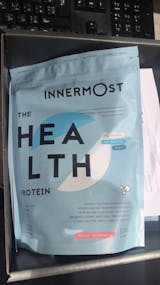If you usually prefer other forms of exercise, especially in winter when running outside can be chilly and daunting (those 4pm sunsets aren’t conducive to raring to leave the house), you may have forgotten just how fantastic running is for you.
Love it or hate it, the health benefits of running are indisputable. And the good news is you don't need to be ticking off 10k's every morning to start enjoying those benefits. Clocking just a few short sessions a week can provide you with quick wins that'll keep you feeling great. Here's why running is so good for you.
Boosts your mood
We’re sure you’ve heard of the phrase runner’s high - trust us when we say it’s a very real phenomenon. A recent study found that during the pandemic, 82% of UK runners surveyed said that running helped them to clear their mind, and 78% felt it made them feel more in control of their life.
It’s not that you’re running away from your problems when you head outside for a jog, more that doing so helps your mind see the bigger picture. The meditative act of your feet hitting the pavement acts as a balm for troubled minds.
Improves heart health

It will surprise no-one to discover that running is good for you because it’s very helpful in increasing cardiovascular health. This improves your level of endurance so you can run, jump, dance and even skateboard for longer periods of time without getting tired and out of breath.
You don’t even have to be running very fast for this to happen, as longer, slower runs are what build your aerobic base and cardiovascular health overall. If you’re short on time, try a session which switches between short, fast runs and periods of walking. When you do this, your body uses different energy sources during the run and afterwards when your body is in recovery, meaning you hit two birds with one stone.
Builds strength
Running strengthens your entire body and helps to build muscle, which is great if you’re into weightlifting and want to maximise what your exercise regime is achieving. This is especially true if you’re traversing uneven surfaces and hills, which forces your stabiliser muscles such as your abs, glutes and back to keep you steady and balanced.
Innermost’s The Fit Protein is a great boost to workouts like these, as it helps your body to rehydrate and restore energy and supports muscle growth and repair. We can’t imagine a post-workout routine without it.
Improves health conditions
What is running good for if not helping to manage and prevent illnesses and health conditions? It helps to improve the performance of blood circulation and could even lower blood pressure, as it increases your body’s ability to use and take in oxygen.
Running is so good for you that it can make your heart stronger and increase your lung function. How many activities in life make you happy and are also good for you?
Increases confidence
The knowledge that your body is capable of running fast is an empowering thing. It can also be a way to form a community and meet new people, whether that’s through joining a running club, attending races or simply meeting a friend for a lunchtime 5k.
Prioritising your fitness and mental health enough to fit runs into your busy schedule shows that you care about keeping yourself happy and well. There’s no way around it - running is incredibly good for you. All you have to do is lace up your trainers and go.
























